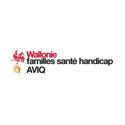In short

In the event of a public health threat, health authorities take measures to minimize the risk to the Belgian population. The role of the Risk Assessment Group (RAG) is to:
- analyze any signal that may have an impact on public health, and
- propose prevention and control measures to the health authorities (Risk Management Group), who decide on the measures to be applied.
Sciensano coordinates the Risk Assessment Group.
Project description
Following the World Health Organisation (WHO) International Health Regulations from 2005, 2 permanent structures were created in 2007 in the event of a public health threat in Belgium:
- the Risk Assessment Group (RAG)
- the Risk Management Group (RMG).
Their role and constitution are established through a protocol agreement between the Belgian Health Authorities.
The Risk Assessment Group (RAG) analyses the risk and proposes measures
Sciensano coordinates the RAG. More information on the way of working is available in the RAG’s work procedure, available in ![]() French or in
French or in ![]() Dutch.
Dutch.
The RAG is composed of permanent experts (public health professionals), supported by specific experts according to the type of event (infection, environmental problem, etc.). Each advice document lists the sollicited experts for the specific advice. All members of the RAG are:
- informed on the house rules
- bound to confidentiality of information and
- requested to declare any conflict of interest.
The role of the RAG is to:
- evaluate the threat and assess the risk posed to public health, based on epidemiological and scientific data
- propose measures to the RMG to limit or control the threat and
- evaluate the impact of interventions.
The threats for public health can be of microbiological, chemical or environmental origin. Monitoring of potential health threats is based on signals identified through routine epidemiological surveillance in Belgium (e.g. unexpected increase of the number of cases for a disease), and information on threats occurring in other countries, with a potential impact for Belgium (e.g. outbreak of Ebola in Africa). This is referred to as “epidemic intelligence”.
The Risk Management group (RMG) decides on the measures and communicates
The RMG consists of representatives of health authorities and is chaired by the National Focal Point for the International Health Regulations which is part of the FPS Public Health.
Based on the advice of the RAG, the RMG decides on the measures that are needed to protect the public health. It is also RMG that is in charge of the communication to public health professionals and general public.
For more information, contact Jorgen Stassijns, coordinator of the RAG
Advice
Respi Radar
- 20240314_RAG_RESPIRADAR_NL, 20240314_RAG_RESPIRADAR_FR
- 20240229_RAG_RESPIRADAR_NL, 20240229_RAG_RESPIRADAR_FR
- 20240222_RAG_RESPIRADAR_NL, 20240222_RAG_RESPIRADAR_FR
- 20240208_RAG_RESPIRADAR_NL, 20240208_RAG_RESPIRADAR_FR
- 20240201_RAG_RESPIRADAR_NL, 20240201_RAG_RESPIRADAR_FR
- 20240125_RAG_RESPIRADAR_NL, 20240125_RAG_RESPIRADAR_FR
- 20240118_RAG_RESPIRADAR_NL, 20240118_RAG_RESPIRADAR_FR
- 20240111_RAG_RESPIRADAR_NL, 20240111_RAG_RESPIRADAR_FR
- 20231221_RAG_RESPIRADAR_NL, 20231221_RAG_RESPIRADAR_FR
- 20231214_RAG_RESPIRADAR_NL, 20231214_RAG_RESPIRADAR_FR
- 20231207_RAG_RESPIRADAR_NL, 20231207_RAG_RESPIRADAR_FR
- 20231130_RAG_RESPIRADAR_NL, 20231130_RAG_RESPIRADAR_FR
- 20231123_RAG_RESPIRADAR_NL, 20231123_RAG_RESPIRADAR_FR
- 20231019_RAG_RESPIRADAR_NL, 20231019_RAG_RESPIRADAR_FR
- 20230921_RAG_RESPIRADAR_NL, 20230921_RAG_RESPIRADAR_FR
COVID-19
Epidemiological updates
- 2023
-
The epidemiological updates are only available in Dutch and French.
- 20230823_RAG_Update epidemiologie_NL, 20230823_RAG_Update epidemiologique_FR
- 20230809_RAG_Update epidemiologie_NL, 20230809_RAG_Update epidemiologique_FR
- 20230726_RAG_Update epidemiologie_NL, 20230726_RAG_Update epidemiologique_FR
- 20230712_RAG_Update epidemiologie_NL, 20230712_RAG_Update epidemiologique_FR
- 20230628_RAG_Update epidemiologie_NL, 20230628_RAG_Update epidemiologique_FR
- 20230614_RAG_Update epidemiologie_NL, 20230614_RAG_Update epidemiologique_FR
- 20230531_RAG_Update epidemiologie_NL, 20230531_RAG_Update epidemiologique_FR
- 20230517_RAG_Update epidemiologie_NL, 20230517_RAG_Update epidemiologique_FR
- 20230503_RAG_Update epidemiologie_NL, 20230503_RAG_Update epidemiologique_FR
- 20230426_RAG_Update epidemiologie_NL, 20230426_RAG_Update epidemiologique_FR
- 20230412_RAG_Update epidemiologie_NL, 20230412_RAG_Update epidemiologique_FR
- 20230405_RAG_Update epidemiologie_NL, 20230405_RAG_Update epidemiologique_FR
- 20230329_RAG_Update epidemiologie_NL, 20230329_RAG_Update epidemiologique_FR
- 20230322_RAG_Update epidemiologie_NL, 20230322_RAG_Update epidemiologique_FR
- 20230315_RAG_Update epidemiologie_NL, 20230315_RAG_Update epidemiologique_FR
- 20230308_RAG_Update epidemiologie_NL, 20230308_RAG_Update epidemiologique_FR
- 20230301_RAG_Update epidemiologie_NL, 20230301_RAG_Update epidemiologique_FR
- 20230222_RAG_Update epidemiologie_NL, 20230222_RAG_Update epidemiologique_FR
- 20230215_RAG_Update epidemiologie_NL, 20230215_RAG_Update epidemiologique_FR
- 20230208_RAG_Update epidemiologie_NL, 20230208_RAG_Update epidemiologique_FR
- 20230201_RAG_Update epidemiologie_NL, 20230201_RAG_Update epidemiologique_FR
- 20230125_RAG_Update epidemiologie_NL, 20230125_RAG_Update epidemiologique_FR
- 20230118_RAG_Update epidemiologie_NL, 20230118_RAG_Update epidemiologique_FR
- 20230111_RAG_Update epidemiologie_NL, 20230111_RAG_Update epidemiologique_FR
- 20230104_RAG_Update epidemiologie_NL, 20230104_RAG_Update epidemiologique_FR
Risk assessments
Some documents are only available in Dutch and/or French.
- 2023
- 2022
-
- 20220110_RAG_Risk assessment pandemic law_NL, 20220110_RAG_Risk assessment pandemic law_FR
- 20220107_RAG_CST région Bruxelloise_FR
- 20220114_RAG_CST_Vlaamse Gemeenschap_NL
- 20220126_RAG_CST_Communauté germanophone_FR
- 20220228_RAG_Risk assessment pandemic law_NL, 20220228_RAG_Risk assessment pandemic law_FR
- 20220323_Criteria early warnings and alerts_Update_NL, 20220323_Criteria early warnings and alerts_Update_FR
- 20220817_RAG_Drempels barometer_NL, 20220817_RAG_Seuils barometre_FR
- 2021
-
- 20210303_Advice_RAG_Drempels plan B en C_NL, 20210303_Advice_RAG_Seuils plan B et C_FR
- 20210323_Risico-analyse gemeenten_NL, 20210323_Analyse risque communes_FR
- 20210329_Risico-analyse gemeenten_NL, 20210329_Analyse risque communes_FR
- 20210517_Advice_RAG_Criteria list countries VOCs_EN
- Assessment Delta variant Belgium_160621_EN
- 20210625_RAG_Criteria_VOC_Countries
- 20210708_Advice_RAG_Thresholds riskmanagement_NL, 20210708_Advice_RAG_Thresholds riskmanagement_FR
- 20210901_RAG_Risk assessment pandemic law_NL, 20210901_RAG_Risk assessment pandemic law_FR
- 20210712_Criteria Early warnings and Alerts_NL, 20210712_Criteria Early warnings and Alerts_FR
- 20210929_RAG_CST région Wallonne_FR
- 20210930_RAG_CST région Bruxelloise_FR
- 20211015_RAG_CST Communauté germanophone_FR
- 20211020_RAG_CST Vlaamse Gemeenschap_NL
- 20211021_RAG_Risk assessment pandemic law_NL, 20211021_RAG_Risk assessment pandemic law_FR
- 20211110_RAG_CST Vlaams-Brabant_NL
- 20211122_RAG_CST Communauté germanophone_FR
- 20211117_RAG_CST Oost-Vlaanderen_NL
- 20211126_RAG_Risk assessment variant Omicron_EN
- 20211206_RAG_CST région Bruxelloise_FR
- 20211215_Advice_RAG_Thresholds riskmanagement_Update_NL, 20211215_Advice_RAG_Thresholds riskmanagement_Update_FR
- 20211216_RAG_CST région Wallonne_FR
- 2020
-
 20200120_PRA-nCOV_First RA.pdf
20200120_PRA-nCOV_First RA.pdf 20200122_PRA-nCOV_update.pdf
20200122_PRA-nCOV_update.pdf 20200212_PRA-nCOV_update.pdf
20200212_PRA-nCOV_update.pdf 20200219_Sciensano epidemiological situation&risk.pdf
20200219_Sciensano epidemiological situation&risk.pdf 20200223_PRA-COVID19_update.pdf
20200223_PRA-COVID19_update.pdf 20200224_Sciensano epidemiological situation&risk.pdf
20200224_Sciensano epidemiological situation&risk.pdf 20200228_PRA_nCOV_update.pdf
20200228_PRA_nCOV_update.pdf 20200301_Sciensano epidemiological situation&risk.pdf
20200301_Sciensano epidemiological situation&risk.pdf 20200307_PRA_nCOV_update.pdf
20200307_PRA_nCOV_update.pdf 20200308_PRA_nCOV_update.pdf
20200308_PRA_nCOV_update.pdf 20200308_PRA_Recommandations du RAG au RMG.pdf
20200308_PRA_Recommandations du RAG au RMG.pdf 20200308_PRA_social distancing maatregelen.pdf
20200308_PRA_social distancing maatregelen.pdf 20200323-Sciensano epidemiological situation&risk.pdf
20200323-Sciensano epidemiological situation&risk.pdf 20200429_PRA_kawasaki.pdf
20200429_PRA_kawasaki.pdf 20200512_PRA_Kawasaki.pdf
20200512_PRA_Kawasaki.pdf 20200520_Testing other countries RMG.pdf
20200520_Testing other countries RMG.pdf 20200527_PRA_COVID & plan canicule.pdf
20200527_PRA_COVID & plan canicule.pdf 20201220_Advice RAG_SARS-CoV2 variants.pdf
20201220_Advice RAG_SARS-CoV2 variants.pdf 20201228_Advice RAG_update SARS-CoV-2 variants.pdf
20201228_Advice RAG_update SARS-CoV-2 variants.pdf
Test strategy
Some documents are only available in Dutch and/or French.
- 2023
- 2022
-
- 20220113_Advice RAG_Use of RATs and nasal samples for Omicron_NL, 20220113_Advice RAG_Use of RATs and nasal samples for Omicron_FR
- 20220208_RAG_Advice_Test and trace strategies by levels_ENG
- 20220923_Advice RAG_Genomic surveillance and rapid PCR_ENG
- 20220930_Advice RAG_Update test strategy_ENG
- 20221017_Advice RAG_Update indications serology_ENG
- 2021
-
 20210125_RAG_Selection of samples for sequencing_NL.pdf
20210125_RAG_Selection of samples for sequencing_NL.pdf 20210125_RAG_Selection of samples for sequencing_FR.pdf
20210125_RAG_Selection of samples for sequencing_FR.pdf 20210204_RAG_Advice_Herhaald testen in bepaalde doelgroepen_NL.pdf
20210204_RAG_Advice_Herhaald testen in bepaalde doelgroepen_NL.pdf 20210204_RAG_Advice_Testing répété dans certaines populations_FR.pdf
20210204_RAG_Advice_Testing répété dans certaines populations_FR.pdf 20210211_Advice RAG_Facilitated access to testing for students.pdf
20210211_Advice RAG_Facilitated access to testing for students.pdf 20210216_Advice RAG_Pooling of samples for RT-PCR.pdf
20210216_Advice RAG_Pooling of samples for RT-PCR.pdf 20210303_Advice RAG_Testing of travelers_NL.pdf
20210303_Advice RAG_Testing of travelers_NL.pdf 20210303_Advice RAG_Testing of travelers_FR.pdf
20210303_Advice RAG_Testing of travelers_FR.pdf 20210303_Advice RAG_Self-testing and breath tests_NL.pdf
20210303_Advice RAG_Self-testing and breath tests_NL.pdf 20210303_Advice RAG_Self-testing and breath tests_FR.pdf
20210303_Advice RAG_Self-testing and breath tests_FR.pdf 20210315_Advice RAG_Selection for samples for sequencing — update_NL.pdf
20210315_Advice RAG_Selection for samples for sequencing — update_NL.pdf 20210315_Advice RAG_Selection for samples for sequencing - update_FR.pdf
20210315_Advice RAG_Selection for samples for sequencing - update_FR.pdf 20210315_Advice RAG_Testing in prisons_NL.pdf
20210315_Advice RAG_Testing in prisons_NL.pdf 20210315_Advice RAG_Testing in prisons_FR.pdf
20210315_Advice RAG_Testing in prisons_FR.pdf 20210315_Advice RAG_Transport of vulnerable people_NL.pdf
20210315_Advice RAG_Transport of vulnerable people_NL.pdf 20210315_Advice RAG_Transport of vulnerable people_FR.pdf
20210315_Advice RAG_Transport of vulnerable people_FR.pdf 20210323_Advice RAG_Repetitive screening in the workplace_NL.pdf
20210323_Advice RAG_Repetitive screening in the workplace_NL.pdf 20210323_Advice RAG_Repetitive screening in the workplace_FR.pdf
20210323_Advice RAG_Repetitive screening in the workplace_FR.pdf 20210323_Advice RAG_Interpretation of self-test results_NL.pdf
20210323_Advice RAG_Interpretation of self-test results_NL.pdf 20210323_Advice RAG_Interpretation of self-test results_FR.pdf
20210323_Advice RAG_Interpretation of self-test results_FR.pdf 20210401_Advice RAG_test strategy_Update March_2021_NL.pdf
20210401_Advice RAG_test strategy_Update March_2021_NL.pdf 20210401_Advice RAG_test strategy_Update March_2021_FR.pdf
20210401_Advice RAG_test strategy_Update March_2021_FR.pdf 20210412_Advice RAG_Use of search dogs for detecting SARS-CoV-2_NL.pdf
20210412_Advice RAG_Use of search dogs for detecting SARS-CoV-2_NL.pdf 20210412_Advice RAG_Use of search dogs for detecting SARS-CoV-2_FR.pdf
20210412_Advice RAG_Use of search dogs for detecting SARS-CoV-2_FR.pdf 20210419_Advice RAG_validity period negative Ag test_NL.pdf
20210419_Advice RAG_validity period negative Ag test_NL.pdf 20210419_Advice RAG_validity period negative Ag test_FR.pdf
20210419_Advice RAG_validity period negative Ag test_FR.pdf 20210419_Advice RAG_Rapid RT-PCR tests_NL.pdf
20210419_Advice RAG_Rapid RT-PCR tests_NL.pdf 20210419_Advice RAG_Rapid RT-PCR tests_FR.pdf
20210419_Advice RAG_Rapid RT-PCR tests_FR.pdf 20210419_Advice RAG_Automated Ag tests_NL.pdf
20210419_Advice RAG_Automated Ag tests_NL.pdf 20210419_Advice RAG_Automated Ag tests_FR.pdf
20210419_Advice RAG_Automated Ag tests_FR.pdf 20210510_Advice RAG_Indications for self-testing_NL.pdf
20210510_Advice RAG_Indications for self-testing_NL.pdf 20210510_Advice RAG_Indications for self-testing_FR.pdf
20210510_Advice RAG_Indications for self-testing_FR.pdf 20210517_Advice RAG_Use of nasal swabs_NL.pdf
20210517_Advice RAG_Use of nasal swabs_NL.pdf 20210517_Advice RAG_Use of nasal swabs_FR.pdf
20210517_Advice RAG_Use of nasal swabs_FR.pdf 20210517_Advice RAG_Use of saliva for rapid Ag testing_NL.pdf
20210517_Advice RAG_Use of saliva for rapid Ag testing_NL.pdf 20210517_Advice RAG_Use of saliva for rapid Ag testing_FR.pdf
20210517_Advice RAG_Use of saliva for rapid Ag testing_FR.pdf 20210525_Advice RAG_Validity period negative PCR test_NL.pdf
20210525_Advice RAG_Validity period negative PCR test_NL.pdf 20210525_Advice RAG_Validity period negative PCR test_FR.pdf
20210525_Advice RAG_Validity period negative PCR test_FR.pdf 20210531_Advice RAG_Interpretation of traces of SARS-CoV-2_NL.pdf
20210531_Advice RAG_Interpretation of traces of SARS-CoV-2_NL.pdf 20210531_Advice RAG_Interpretation of traces of SARS-CoV-2_FR.pdf
20210531_Advice RAG_Interpretation of traces of SARS-CoV-2_FR.pdf 20210531_Advice RAG_Household pooling_NL.pdf
20210531_Advice RAG_Household pooling_NL.pdf 20210531_Advice RAG_Household pooling_FR.pdf
20210531_Advice RAG_Household pooling_FR.pdf 20210614_Advice RAG_Saliva and self-collected nose-throat swabs_NL.pdf
20210614_Advice RAG_Saliva and self-collected nose-throat swabs_NL.pdf 20210614_Advice RAG_Saliva and self-collected nose-throat swabs_FR.pdf
20210614_Advice RAG_Saliva and self-collected nose-throat swabs_FR.pdf 20210621_Advice RAG_Use of a genotyping PCR protocol_NL.pdf
20210621_Advice RAG_Use of a genotyping PCR protocol_NL.pdf 20210621_Advice RAG_Use of a genotyping PCR protocol_FR.pdf
20210621_Advice RAG_Use of a genotyping PCR protocol_FR.pdf 20210830_Advice RAG_Update indications for sequencing_NL.pdf
20210830_Advice RAG_Update indications for sequencing_NL.pdf 20210830_Advice RAG_Update indications for sequencing_FR.pdf
20210830_Advice RAG_Update indications for sequencing_FR.pdf 20210906_Advice RAG_Update use of multiplex tests_NL.pdf
20210906_Advice RAG_Update use of multiplex tests_NL.pdf 20210906_Advice RAG_Update use of multiplex tests_FR.pdf
20210906_Advice RAG_Update use of multiplex tests_FR.pdf 20210906_Advice RAG_Update use of saliva and anterior nasal samples_NL.pdf
20210906_Advice RAG_Update use of saliva and anterior nasal samples_NL.pdf 20210906_Advice RAG_Update use of saliva and anterior nasal samples_FR.pdf
20210906_Advice RAG_Update use of saliva and anterior nasal samples_FR.pdf 20211008_Advice RAG_Test strategy_Updateoct2021_NL.pdf
20211008_Advice RAG_Test strategy_Updateoct2021_NL.pdf 20211008_Advice RAG_Test strategy_Updateoct2021_FR.pdf
20211008_Advice RAG_Test strategy_Updateoct2021_FR.pdf 20211018_Advice RAG_Ag tests in travelers-Update october_2021_NL.pdf
20211018_Advice RAG_Ag tests in travelers-Update october_2021_NL.pdf 20211018_Advice RAG_Ag tests in travelers-Update october 2021_FR.pdf
20211018_Advice RAG_Ag tests in travelers-Update october 2021_FR.pdf 20211223_Advice RAG_Update indications for self-testing_NL.pdf
20211223_Advice RAG_Update indications for self-testing_NL.pdf 20211223_Advice RAG_Update indications for self-testing_FR.pdf
20211223_Advice RAG_Update indications for self-testing_FR.pdf
- 2020
-
 20200324_Advice RAG_testing priority uitbreiding_FR.pdf
20200324_Advice RAG_testing priority uitbreiding_FR.pdf 20200402_Advice RAG_Rapid testing&WZC_NL.pdf
20200402_Advice RAG_Rapid testing&WZC_NL.pdf 20200414_Advice RAG_Testing asympomatic_NL.pdf
20200414_Advice RAG_Testing asympomatic_NL.pdf 20200419_Advice RAG_Sérologie COVID_FR.pdf
20200419_Advice RAG_Sérologie COVID_FR.pdf 20200420_Advice RAG_Testing strategy_FR.pdf
20200420_Advice RAG_Testing strategy_FR.pdf 20200420_Advice RAG_CBC_Indicatiestelling serologie COVID-19_NL.pdf
20200420_Advice RAG_CBC_Indicatiestelling serologie COVID-19_NL.pdf 20200508_Advice RAG_Testing contact_NF.pdf
20200508_Advice RAG_Testing contact_NF.pdf 20200508_Advice RAG_Sérologie COVID indications étendues_EN.pdf
20200508_Advice RAG_Sérologie COVID indications étendues_EN.pdf 20200517_Advice RAG_Test_PCR J7_contacts_FR.pdf
20200517_Advice RAG_Test_PCR J7_contacts_FR.pdf 30300630_Advice RAG_interpretation PCR.pdf
30300630_Advice RAG_interpretation PCR.pdf 20200801_Advice RAG_prioritisation testing.pdf
20200801_Advice RAG_prioritisation testing.pdf 20200819_Advice RAG_tests and sampling.pdf
20200819_Advice RAG_tests and sampling.pdf 20200909_Advice RAG_test strategy update September_NL.pdf
20200909_Advice RAG_test strategy update September_NL.pdf 20200928_Advice RAG_Case definition_update.pdf
20200928_Advice RAG_Case definition_update.pdf 20201012_Advice RAG_Serologic tests.pdf
20201012_Advice RAG_Serologic tests.pdf 20201012_Advice RAG_test strategy update October_NL.pdf
20201012_Advice RAG_test strategy update October_NL.pdf 20201012_Advice RAG_test strategy update October_FR.pdf
20201012_Advice RAG_test strategy update October_FR.pdf 20201103_Advice RAG_test strategy update November_NL.pdf
20201103_Advice RAG_test strategy update November_NL.pdf 20201103_Advice RAG_test strategy update November_FR.pdf
20201103_Advice RAG_test strategy update November_FR.pdf 20201105_Advice RAG_Ag RDTs in ambulatory care_NL.pdf
20201105_Advice RAG_Ag RDTs in ambulatory care_NL.pdf 20201105_Advice RAG_Ag_RDTs in ambulatory care_FR.pdf
20201105_Advice RAG_Ag_RDTs in ambulatory care_FR.pdf 20201105_Advice RAG_Ag RDTs in school clusters_NL.pdf
20201105_Advice RAG_Ag RDTs in school clusters_NL.pdf 20201110_Advice RAG_Ag RDTs in school clusters_FR.pdf
20201110_Advice RAG_Ag RDTs in school clusters_FR.pdf 20201116_Advice RAG_Ag_RDTs in occupational clusters_NL.pdf
20201116_Advice RAG_Ag_RDTs in occupational clusters_NL.pdf 20201116_Advice RAG_Ag RDTs in occupational clusters_FR.pdf
20201116_Advice RAG_Ag RDTs in occupational clusters_FR.pdf 20201120_Advice RAG_Ag RDTs in emergency departments_NL.pdf
20201120_Advice RAG_Ag RDTs in emergency departments_NL.pdf 20201120_Advice RAG_Ag RDTs in emergency departments_FR.pdf
20201120_Advice RAG_Ag RDTs in emergency departments_FR.pdf 20201130_Advice RAG_Saliva sampling_NL.pdf
20201130_Advice RAG_Saliva sampling_NL.pdf 20201130_Advice RAG_Saliva sampling_FR.pdf
20201130_Advice RAG_Saliva sampling_FR.pdf 20201214_Advice RAG_test strategy update december_NL.pdf
20201214_Advice RAG_test strategy update december_NL.pdf 20201214_Advice RAG_test strategy update december_FR.pdf
20201214_Advice RAG_test strategy update december_FR.pdf 20201222_Advice RAG_Sequencing.pdf
20201222_Advice RAG_Sequencing.pdf 20201218_Advice RAG_Ag_RDTs for screening of visitors to nursing homes_NL.pdf
20201218_Advice RAG_Ag_RDTs for screening of visitors to nursing homes_NL.pdf 20201218_Advice RAG_Ag RDTs for screening of visitors to nursing homes_FR.pdf
20201218_Advice RAG_Ag RDTs for screening of visitors to nursing homes_FR.pdf
Measures for infected persons and their contacts
Some documents are only available in Dutch and/or French.
- 2023
- 2022
- 2021
-
 20210120_Advice RAG_Impact of new variants on Q and isolation_NL.pdf
20210120_Advice RAG_Impact of new variants on Q and isolation_NL.pdf 20210120_Advice RAG_Impact of new variants on Q and isolation_FR.pdf
20210120_Advice RAG_Impact of new variants on Q and isolation_FR.pdf 20210308_Advice RAG_IsolationAndQuarantaineForNewVariants_update_NL.pdf
20210308_Advice RAG_IsolationAndQuarantaineForNewVariants_update_NL.pdf 20210308_Advice RAG_IsolationAndQuarantaineForNewVariants_update_FR.pdf
20210308_Advice RAG_IsolationAndQuarantaineForNewVariants_update_FR.pdf 20210325_Advice RAG_testingLRC_NL.pdf
20210325_Advice RAG_testingLRC_NL.pdf 20210325_Advice RAG_testingLRC_FR.pdf
20210325_Advice RAG_testingLRC_FR.pdf 20210329_Advice RAG_testing previously positives_NL.pdf
20210329_Advice RAG_testing previously positives_NL.pdf 20210329_Advice RAG_testing previously positives_FR.pdf
20210329_Advice RAG_testing previously positives_FR.pdf 20210701_Advice RAG_contact tracing&backward tracing_NL.pdf
20210701_Advice RAG_contact tracing&backward tracing_NL.pdf 20210701_Advice RAG_contact tracing&backward tracing_FR.pdf
20210701_Advice RAG_contact tracing&backward tracing_FR.pdf 20210226_Advice RAG_impact of vaccination on t and q_update_feb_NL.pdf
20210226_Advice RAG_impact of vaccination on t and q_update_feb_NL.pdf 20210226_Advice RAG_impact of vaccination on t and q_update_feb_FR.pdf
20210226_Advice RAG_impact of vaccination on t and q_update_feb_FR.pdf 20200420_Advice RAG_impact of vaccination on T and Q_update_april_NL.pdf
20200420_Advice RAG_impact of vaccination on T and Q_update_april_NL.pdf 20200420_Advice RAG_impact of vaccination on T and Q_update_april_FR.pdf
20200420_Advice RAG_impact of vaccination on T and Q_update_april_FR.pdf 20210528_Advice RAG_impact vaccination T and Q_update may_NL.pdf
20210528_Advice RAG_impact vaccination T and Q_update may_NL.pdf 20210528_Advice_RAG_impact vaccination T and Q_update may_FR.pdf
20210528_Advice_RAG_impact vaccination T and Q_update may_FR.pdf 20210622_Advice RAG_previously infected_updatejune_NL.pdf
20210622_Advice RAG_previously infected_updatejune_NL.pdf 20210622_Advice RAG_previously infected_updatejune_FR.pdf
20210622_Advice RAG_previously infected_updatejune_FR.pdf 20210812_Advice RAG_update measures august_NL.pdf
20210812_Advice RAG_update measures august_NL.pdf 20210812_Advice RAG_update measures august_FR.pdf
20210812_Advice RAG_update measures august_FR.pdf
- 2020
-
 20200221_Advice RAG_Reusable mask.pdf
20200221_Advice RAG_Reusable mask.pdf 20200320_Advice RAG_Prioritisation masks_FR.pdf
20200320_Advice RAG_Prioritisation masks_FR.pdf 20200413_Advice RAG_Consensus on the use of masks_FR.pdf
20200413_Advice RAG_Consensus on the use of masks_FR.pdf 20200422_Advice RAG_Guidelines contacts.pdf
20200422_Advice RAG_Guidelines contacts.pdf 20200428_Advice RAG_Case definition for RMG.pdf
20200428_Advice RAG_Case definition for RMG.pdf 20200522_Advice RAG_reinfectie.pdf
20200522_Advice RAG_reinfectie.pdf 20200701_Advice RAG_quarantine for travelers.pdf
20200701_Advice RAG_quarantine for travelers.pdf 20200917_Advice RAG_Period of presymptomatic transmission.pdf
20200917_Advice RAG_Period of presymptomatic transmission.pdf 20200921_Advice RAG_Duration of quarantine.pdf
20200921_Advice RAG_Duration of quarantine.pdf 20200928_Advice RAG_Clarification measures quarantine & contact.pdf
20200928_Advice RAG_Clarification measures quarantine & contact.pdf 20201021_Advice RAG_reinfection update.pdf
20201021_Advice RAG_reinfection update.pdf 20201203_Advice RAG_duration of isolation.pdf
20201203_Advice RAG_duration of isolation.pdf 20201229_Advice RAG_Impact of vaccination.pdf
20201229_Advice RAG_Impact of vaccination.pdf
Children
- 2021
- 2020
Varia
Some documents are only available in Dutch and/or French.
- 2023
- 2022
- 2021
-
 20210129_Advice RAG_hospital outbreaks_NL.pdf
20210129_Advice RAG_hospital outbreaks_NL.pdf 20210129_Advice RAG_hospital outbreaks_FR.pdf
20210129_Advice RAG_hospital outbreaks_FR.pdf 20210201_Advice_Consensus_useoffacemasks_NL.pdf
20210201_Advice_Consensus_useoffacemasks_NL.pdf 20210201_Advice_Consensus_useoffacemasks_FR.pdf
20210201_Advice_Consensus_useoffacemasks_FR.pdf 20210621_Advice RAG_COVID en hitteplan_update_2021_NL.pdf
20210621_Advice RAG_COVID en hitteplan_update_2021_NL.pdf 20210621_Advice RAG_COVID et plan chaleur et ozone_update_2021_FR.pdf
20210621_Advice RAG_COVID et plan chaleur et ozone_update_2021_FR.pdf 20210929_RAG_Generisch advies gebruik CST.pdf
20210929_RAG_Generisch advies gebruik CST.pdf 20210929_RAG_Avis générique utilisation CST.pdf
20210929_RAG_Avis générique utilisation CST.pdf
- 2020
-
 Consensus on the use of masks RMG_NL.pdf
Consensus on the use of masks RMG_NL.pdf COVID-19_Update_consensus_masks_FR.pdf
COVID-19_Update_consensus_masks_FR.pdf Praktische richtlijnen rond gebruik van stoffen mondmaskers_RMG.pdf
Praktische richtlijnen rond gebruik van stoffen mondmaskers_RMG.pdf Directives pratiques pour l’utilisation de masques buccaux en tissu_RMG.pdf
Directives pratiques pour l’utilisation de masques buccaux en tissu_RMG.pdf 20200525_Advice RAG_Air ventilation.pdf
20200525_Advice RAG_Air ventilation.pdf 20200602_Advice RAGCA-cluster abattoirs_FR.pdf
20200602_Advice RAGCA-cluster abattoirs_FR.pdf COVID-19_update_consensus_masks_NL.pdf
COVID-19_update_consensus_masks_NL.pdf 20200731_Advice RAG_technical questions app.pdf
20200731_Advice RAG_technical questions app.pdf 20200813_Advice RAG_thresholds and colorcode.pdf
20200813_Advice RAG_thresholds and colorcode.pdf 20200110_Advice RAG_airborne and ventilation_updatesep.pdf
20200110_Advice RAG_airborne and ventilation_updatesep.pdf 20200110_Advice RAG_storage samples platform.pdf
20200110_Advice RAG_storage samples platform.pdf 20201026_Advice RAG_COVID + health workers.pdf
20201026_Advice RAG_COVID + health workers.pdf 20201027_Advice RAG_search dogs.pdf
20201027_Advice RAG_search dogs.pdf 20201126_Advice RAG_Varia questions on risk analysis COVID-19.pdf
20201126_Advice RAG_Varia questions on risk analysis COVID-19.pdf 20201208_Advice RAG_interpretation and reporting of COVID PCR results.pdf
20201208_Advice RAG_interpretation and reporting of COVID PCR results.pdf 20220330_Termijn afleveren herstelcertificaat_NL.pdf
20220330_Termijn afleveren herstelcertificaat_NL.pdf
Risk assessments
Bacterial infections
Antimicrobial resistance
- Helicobacter pylori
-
2017:
- VRE
-
2015:
Invasive bacterial infections
- Group A Streptococcal (GAS) Disease
-
2023:
2019:
2017:
Chemicals
- Fipronil
-
2017:
Environment
- Flooding
-
2021:
- Heat-ozon
-
2020:
2019:
2015:
Food- & waterborne diseases
- Cholera
-
2017:
- Legionella
-
2019:
- Shigella
-
2024:
2022:
- Other foodborne illness
-
2018:
2016:
Fungal infections
- Candida
-
2016:
Vaccine-preventable diseases
- Diphtheria
-
2023:
2022:
- Measles
-
2019:
- Meningococcus
-
2018:
2015:
- Mpox
-
2024:
2022:
- Pertussis
-
2023
2015:
- Polio
-
2018:
2017:
Vector-borne diseases & zoonosis
Mosquito-borne diseases
- Aedes Albopictus
-
2024:
- Chikungunya
-
2014:
- Malaria
-
2015:
- West Nile virus
-
2019:
- Yellow fever
-
2016:
- Zika
-
2016:
Tick-borne diseases
- Tick-borne encephalitis
-
2017:
Zoonoses
- Bornavirus
-
2015:
- Hantavirus
-
2017:
- Q fever
-
2024:
- Rabies
-
2017:
2016:
- Tularemie
-
2015:
Veterinary emerging zoonoses
- Avian Influenza
-
2022:
Viral hemorrhagic fevers
Viral infections
- Enterovirus
-
2016:
- Hepatitis of unknown origin
-
2022:
- Parvovirus B19
-
2024:
- Respiratory viral infections
-
2024:
2023:
Varia
- Creutzfeldt-Jakob disease
-
2021:
- Refugees
-
2022:
2017:
Sciensano's project investigator(s):
Service(s) working on this project
Partners








